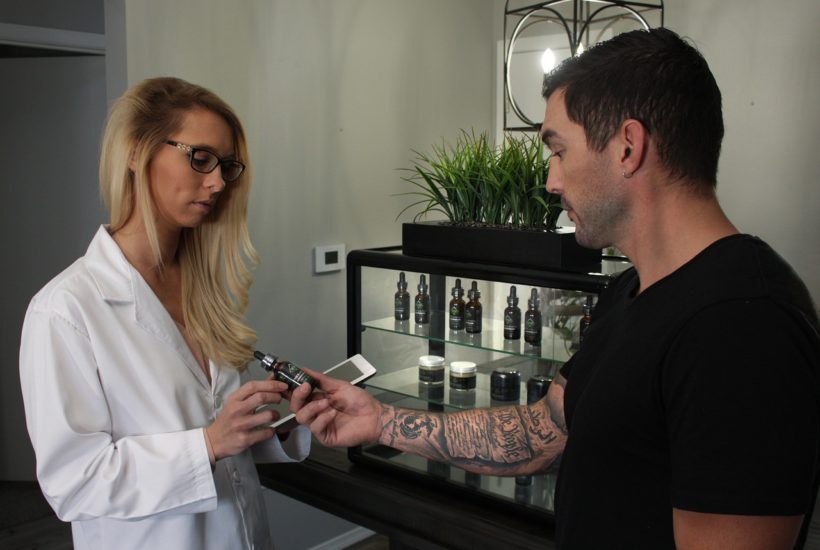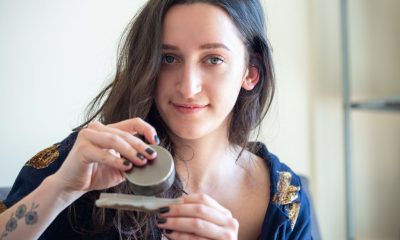Cannabis
Uruguay Incorporates Cannabis Clinic into the Health System
Since its legalization in 2013, cannabis has aroused the interest of many Uruguayans, especially those of legal age, because it has been associated with improvements in various pathologies. However, while it may be very good for many it may also not have the desired effects or meet the high expectations about the therapeutic potential of the cannabis plant’s active compounds.

One of Uruguay‘s largest healthcare providers is incorporating pharmaceutical-grade cannabis into the treatment of chronic pain, Parkinson’s, Alzheimer’s, multiple sclerosis, fibromyalgia, and epilepsy, among other pathologies, and several patients are replacing opiates with cannabis.
Since the beginning of August, the Assistance Center of the Uruguayan Medical Union (CASMU) has been prescribing CBD, one of the active ingredients of cannabis, validated by the pharmaceutical industry.
Read more on the subject and find other important cannabis news with the Hemp.im mobile app.
Chronic pain and bone and joint conditions are the two main conditions of those who consult
Julia Galzerano, the doctor in charge of the clinic, has a sign in her office welcoming people to her “cannabis medicine” practice. An intensivist doctor specialized in the consequences of drug abuse, she started to study the symptomatology of various diseases with cannabis derivatives since Uruguay legalized it as therapeutic in 2013.
She is currently the president of the Uruguayan Society of Endocannabinology (SUEN), a growing discipline of medical science, both in scientific research and clinical practice in several countries. This specialty studies how the active principles of marijuana interact in the body.
“Cannabinoids are one of many components of cannabis. The best known are THC and CBD, but there are more than 130,” Galzerano pointed out in an interview with The Associated Press. “According to the symptom a cannabinoid and the dose is chosen,” he explained at the Montevideo clinic where he has not had a free consultation shift since it opened in early August.
“In general those who come to medical cannabis are people with lots and lots of medication,” he explained. A large majority of patients with chronic pain have decreased their use of opioids since using cannabis, a change that reduces the risks derived from these painkillers for physical and psychological health.
“Cannabis potentiates opioids, they act on the same system and that means that fewer opioids are used. Some people get to suspend them and that decreases adverse effects such as dependence, it also helps to take out other medications,” said Galzerano based on hundreds of clinical histories that support his words.
Since its legalization in 2013, cannabis has aroused the interest of many Uruguayans, especially those of legal age, because it has been associated with improvements in various pathologies. However, while it may be very good for many it may also not have the desired effects or meet the high expectations about the therapeutic potential of the cannabis plant’s active compounds.
“Sometimes people think that with cannabis you don’t need other medicines. They come in search of a cure after having gone through many, many treatments. We explain that it is not magic. Sometimes it doesn’t work, sometimes they have a chance of getting better, but it won’t cure them,” Galzerano explained.
The specialist has trained almost 300 doctors in her country and has seen the positive evolution in the way doctors look at the uses of cannabis in treatments that often do not work with traditional drugs.
In 2016 SUEN organized the first course for physicians in Uruguay
Since then, the evidence, but also the looks of a part of the medical body have changed. “At that time there was a lot of skepticism and disbelief, cannabis was looked at very strangely, but that has been changing. 100% of doctors don’t handle or approve of cannabis, but more and more are referring to the doctor who knows about it. People really want to consult,” Galzerano explained.
Another healthcare provider is close to opening the second cannabis clinic in Uruguay and CASMU is soon to open a polyclinic specializing in children and adolescents, especially for palliative care -those that mitigate discomfort when death is imminent-.
One of the most common uses of cannabis in children is to stop epileptic seizures, which in some cases can be dozens in a day. In these cases, not always but on many occasions cannabis “improves the quality of life and the social bonding of children with autism spectrum disorders. It also gives peace of mind to the families. The advances are incredible, you have to see them,” says Galzerano. “The expectation is great,” he explained.
Uruguay also regulated adult and recreational use in 2013. Since then some 66,000 people have registered to legally access cannabis. But access to medical cannabis has not been as easy for thousands of people because of the strict regulations in place to market a drug. This has caused those who find improvement with cannabis to turn to a “gray market,” Galzerano said.
SUEN has repeatedly requested the use of pharmaceutical-grade THC to the authorities but without progress. “There are pathologies that we treat with THC: such as pain and some cancers… but we need a regulated THC because I want people to be safe when they use it,” remarked the specialist.
__
(Featured image by altika via Pixabay)
DISCLAIMER: This article was written by a third party contributor and does not reflect the opinion of Born2Invest, its management, staff or its associates. Please review our disclaimer for more information.
This article may include forward-looking statements. These forward-looking statements generally are identified by the words “believe,” “project,” “estimate,” “become,” “plan,” “will,” and similar expressions. These forward-looking statements involve known and unknown risks as well as uncertainties, including those discussed in the following cautionary statements and elsewhere in this article and on this site. Although the Company may believe that its expectations are based on reasonable assumptions, the actual results that the Company may achieve may differ materially from any forward-looking statements, which reflect the opinions of the management of the Company only as of the date hereof. Additionally, please make sure to read these important disclosures.
First published in AP NEWS, a third-party contributor translated and adapted the article from the original. In case of discrepancy, the original will prevail.
Although we made reasonable efforts to provide accurate translations, some parts may be incorrect. Born2Invest assumes no responsibility for errors, omissions or ambiguities in the translations provided on this website. Any person or entity relying on translated content does so at their own risk. Born2Invest is not responsible for losses caused by such reliance on the accuracy or reliability of translated information. If you wish to report an error or inaccuracy in the translation, we encourage you to contact us.

-

 Crypto2 weeks ago
Crypto2 weeks agoXRP vs. Litecoin: The Race for the Next Crypto ETF Heats Up
-

 Crypto1 day ago
Crypto1 day agoCrypto Markets Surge on Inflation Optimism and Rate Cut Hopes
-

 Biotech1 week ago
Biotech1 week agoSpain Invests €126.9M in Groundbreaking EU Health Innovation Project Med4Cure
-

 Biotech4 days ago
Biotech4 days agoAdvancing Sarcoma Treatment: CAR-T Cell Therapy Offers Hope for Rare Tumors

























